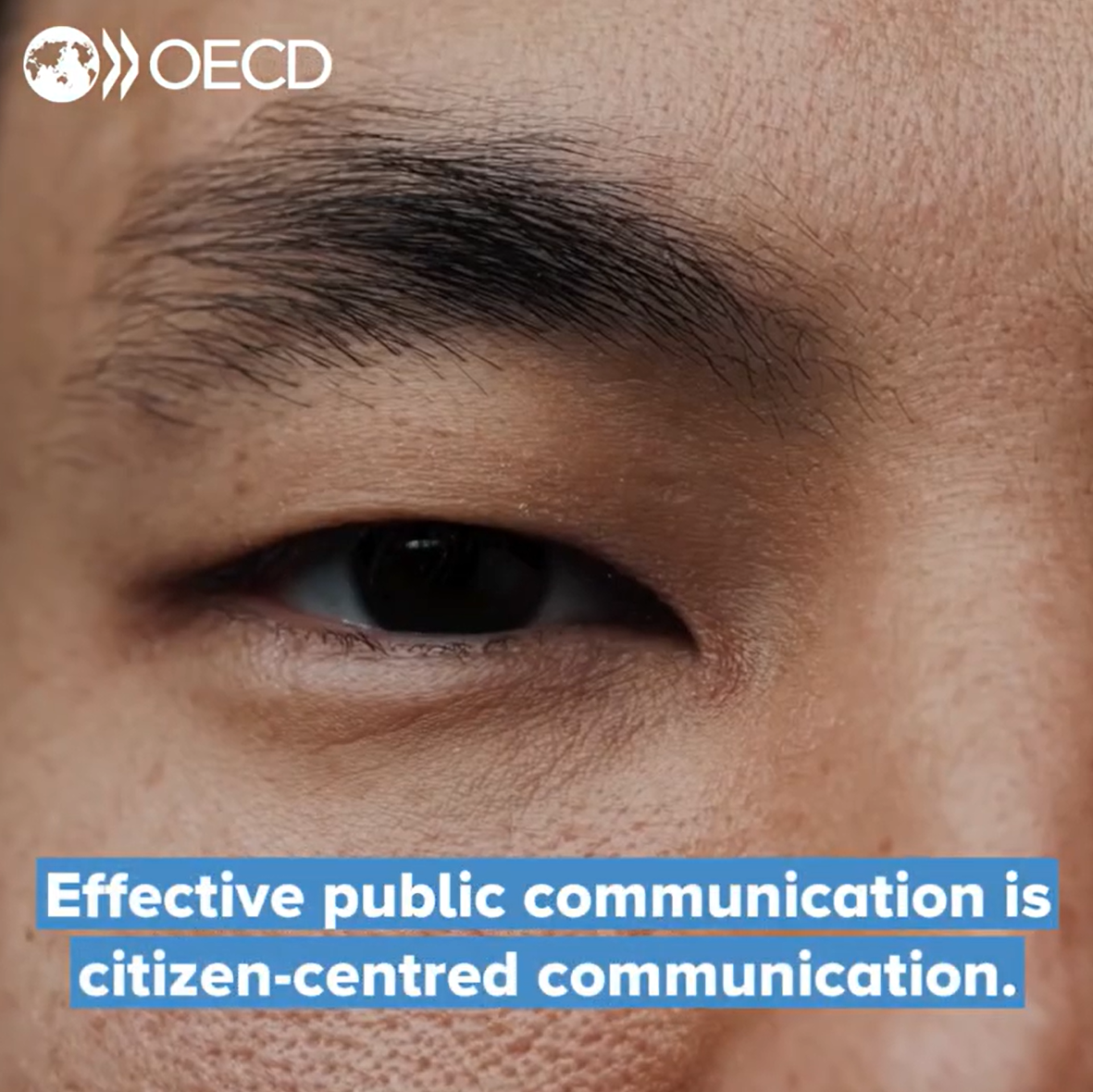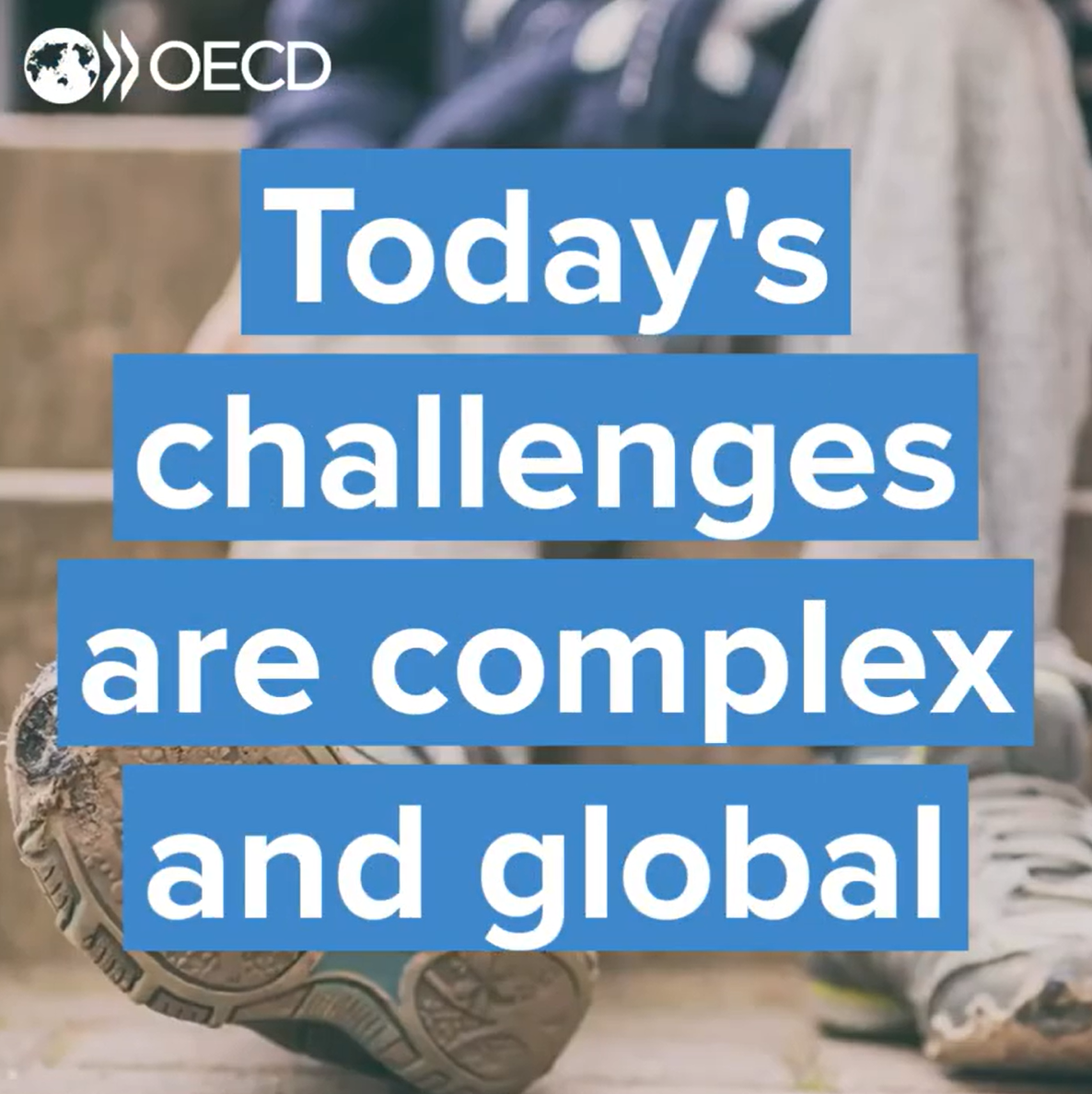The 2021 OECD Trust Survey underscores the link between public trust and the perception that government listens to citizens. By enhancing institutions' ability to incorporate citizen feedback, communicators can help governments respond more effectively to citizens' needs through better informed decisions. Public communication supports the collection of inputs and feedback on the views, concerns, needs, and opinions of stakeholders and citizens. When ethical organisational listening enables dialogue and informs policymaking, it further complements efforts for participative decision-making. This also serves to address citizens’ frustrations that they do not have a say in what governments do and that their feedback goes unheard, primary causes of low trust in institutions identified by the 2021 OECD Trust Survey.
Government communication
The impact of years of health, geopolitical and economic crises have heightened the urgency for governments to ensure accurate and timely information exchange and reconnect with citizens. Yet, amidst the challenges posed by an increasingly complex information environment, governments also find themselves presented with new avenues for public communication, stemming from the digital transformation. Our work supports governments in strengthening citizen-centred public communication that contributes to stronger democracies that deliver for their citizens.

Key messages
Public communication can be a key asset for policymaking and the design and delivery of public services. According to the OECD Trust Survey, a minority of respondents believe a public service would be improved if people complained. Public communication can help bridge that gap by gathering insights and understanding of relevant audiences, their needs and attitudes and ensuring this is taken into consideration when developing policies and services. Its value is becoming increasingly recognised across all stages of the policy cycle. This includes encouraging behavioural change, such as policy compliance and uptake, during the implementation phases of policies and programmes. Through real-time analysis of citizens’ needs and expectations, public communication can additionally support the defining of priorities and designing of policies. It can strengthen transparency and accountability and enable public debates around government actions.
In the fight against mis-and disinformation, fostering societal resilience to such threats is among the key governance responses. In a democratic environment where government information can be challenged by free and independent media, public communication plays an important role in serving as a source of timely and relevant information. Yet, for public communication to inform, unite, and fight mis-and disinformation governments must safeguard public perception on the trustworthiness of information by protecting it from politicisation.
Public support for climate action and green transition policies is essential for their successful adoption and implementation. Given the high reliance of these policies on behavioural change, their success rests in large part on their acceptance and on how citizens and different stakeholder groups engage with them. Public communication plays a crucial role in this context. This includes values-based communication, which can help to better target different segments of the population with messages that would resonate with them. In addition, the perceived effectiveness and fairness of green agenda policies is strongly linked to public support thereof. Public communication can therefore be a powerful lever to address concerns and increase public support.
Context
What are the primary objectives of public communication?
Proactive communication objectives, such as supporting the implementation of policy or the delivery and up-take of public services, lag behind more passive uses of communication, such as raising public awareness of government policies and services, according to the 2020 OECD Survey on Understanding Public Communication. Similarly, citizen-centric types of objectives, such as understanding and analysing public opinion and promoting participation, were selected by fewer respondents than government-centric objectives that relate to defining how priorities will be announced or managing crises.
A lack of sufficient training remains a key challenge.
A key means of ensuring effective communication is recognising public communication as a profession in itself, one that requires investments, guidance and training. Indeed, the highly specialised nature of this function and the speed of change that communications operate in requires regular professional development opportunities through training, career progression and performance appraisals. In doing so, public sector institutions can promote a culture of continuous learning to ensure that skills are fit-forpurpose and can keep up with emerging trends in the field. However, in 2021 only 20 out of 32 of CoGs (63%) reported having a specific structure or individual responsible for providing training.
Latest insights
-
 youtube.com30 September 2022
youtube.com30 September 2022 -
 youtube.com4 February 2022
youtube.com4 February 2022
Related publications
-
 20 April 2023
20 April 2023
Related policy issues
-
Citizens must have a say in the decisions that affect them. Inclusive and impactful participation not only enriches the policymaking process by incorporating diverse views and harnessing collective knowledge, but also strengthens public understanding of outcomes, promotes policy uptake, and reinforces trust in public institutions. It is essential to institutionalise participatory and deliberative processes and better articulate them with representative democracies.Learn more
-
Civic space is a cornerstone of functioning democracies. Defined as the set of conditions non-governmental actors need to participate in public life, a thriving civic space emerges through the combined efforts of a range of actors, including governments, line ministries, public institutions, and civil society.Learn more
-
The case for action to strengthen our democracies is clear: lower voter turnout in many countries, diminishing trust, greater political polarisation, and larger groups disassociating themselves from traditional democratic processes are testing our institutions and hindering governments’ ability to effect positive change for citizens. Our work on open government looks at how governments ensure the inclusion, quality and impact of participatory processes to enable all citizens and stakeholders to influence government activities and decision making and actively participate in the public life.Learn more
-
Governments around the world are increasingly using behavioural science as a lens to better understand how behaviours and social context influence policy outcomes. At the OECD, we research context-specific behavioural drivers and barriers, and support countries in the use of behavioural insights, from policy design to implementation and evaluation.Learn more



